
Take a walk around an old town center and there is likely a mom and pop shop somewhere; a grocery store, a flower shop, maybe a bike shop. Take on a trail ride in a new destination and it may just as well have been built by a mom and pop trail building duo.
As trails across the country take off more people have been getting their hands dirty in the trail building business. After prior careers in the outdoor industry, Adam and Mica Harju dove into the dirt feet first and the husband and wife team started Dirt Candy trail building.
Dirt Candy has built trails near their homes in Northern Minnesota, the Midwest, Colorado, and other locations. Dirt Candy began in 2013 with Adam. He was a guide in Minnesota and a local trail advocate, builder, and volunteer.
“So it was kind of at a moment in our life where I was ready for a career change,” Adam said. “And I just went all in and kind of reinvented myself as an official trail builder. And so that’s kind of how I got into it. And then a couple years into that, I realized this was actually a legitimate deal.”
With most trail building jobs comes a lot of travel. Builders go where the contracts are and it’s typical for companies to travel from spring to fall. As business picked up for Adam, he and Mica were spending less time together. Mica was an outdoor educator at a school in Minnesota, leading a few programs, working banker’s hours.
“I kind of had this epiphany moment,” Mica said, “like we could jump off the cliff together and create a business together, that way we’d be on the same page and working side by side, and we could take off those those downtimes and just go travel if we wanted to. And so I decided to put on a new hat and try out trail building.”

Adam handles a lot of the inquiries and heavy machinery. Mica does much of the fine tuning, or as she says, she puts on the frosting after Adam bakes the cupcakes.
The initial investment into a trail building company isn’t small. Slowly, the two gathered tools and machinery, and the excavators and compactors that cost tens of thousands of dollars to carve out singletrack and build up jump lines. On a small scale, which Mica and Adam operate on, it seems like a risky endeavor, but Adam says the equipment is part of adding value to the company and other trail building companies have been a resource he can lean on for knowledge and advice. Neither Adam nor Mica had a background in business but the two have learned as they go and found a niche in an increasingly competitive industry.
Some companies have dozens of employees; heavy machinery operators, designers, and diggers and land multi-million dollar contracts for entire trail netwoks.
The few-mile trail projects are Dirt Candy’s specialty. The two picked up their first jobs through their network and are receiving more jobs through referral. They’ve thought about scaling up but appreciate the flexibility and low overhead of a two-person company. If a project falls through for some reason, they don’t have employees under them to find work. If the two want to pass on a project and a go ride, they can do that too.
Bike parks and trail networks have grown noticeably in the Midwest, and Dirt Candy has kept busy in places like Wisconsin and Minneosta but they spend time in Western states too. Flow trails are in demand because they’re accessible for a larger group of people, especially in places where mountain bike trails are relatively new, like the Midwest.
“Not every town has the ability to be the next ride center, or whatever,” Adam said, “So they’re looking at putting in these communities trail systems, which are accessible to their population and if they get a little bit of visitor traffic out of it, that’s awesome, too. But we’re seeing that trend of people wanting trail systems, just like the community parks or soccer fields, or whatever. And in that kind of situation, you really do need to meet that community where they’re at.”
Mica adds, “maybe it’s a group of riders all with different skill sets, but they still can enjoy the same trail. And I guess that’s kind of what our target is to make it playful and inclusive.”

There’s also a spatial awareness and aesthetic Dirt Candy attempts to incorporate in trails when possible.
“We always want to work with the land instead of against it,” Mica says.
“For us this is more like art — as long as you can check all the sustainability boxes, then it becomes a canvas — like let’s see what we can do and be creative and add to the rider’s experience,” said Adam.
Mica and Adam are gearing up for another busy trail building season and are still learning along the way. They’re excited about the direction of trail building and developing more mountain bike opportunities in the U.S. Trail building has long been a male-dominated industry but Mica and Adam see some expansion in diversity coming to the industry.
“In the course of being Dirt Candy, I think I’ve only worked or we’ve only worked with a couple of women,” Mica said. She was happy to see a seminar for female trail builders at the Professional Trail Builders Association conference this year. And though diversity in trail building could be improved, it’s not for everyone, Mica says, especially if you’re working with your spouse. Maintaining a work/life balance and a healthy relationship with your spouse can be difficult since you’re working and living with them day in and day out.
“[It’s] been a unique experience for our relationship, as we’ve gone through the years, and figuring out what works, and how do we keep ourselves healthy as a company, but healthy in being married, and not killing each other after a long day.”
Despite the challenges, the Harjus have carved out a unique space for themselves in the trail building industry and captured the momentum of singletrack spreading across the country. As interest in mountain biking increases, the sport can grow in myriad ways, through high school mountain bike programs, more affordable bikes, and more accessible trails for everybody. It’s something that makes the Harjus more excited they caught the trail building wave at high tide.
“I think the take home message is, what an awesome time to be a rider and have all these different trail builders with different skill sets providing opportunities for you,” Adam said. “As a rider all across the country it’s so neat to see innovation happening. And there’s people out there that are really doing some creative things and it feels really good to be part of that industry.”


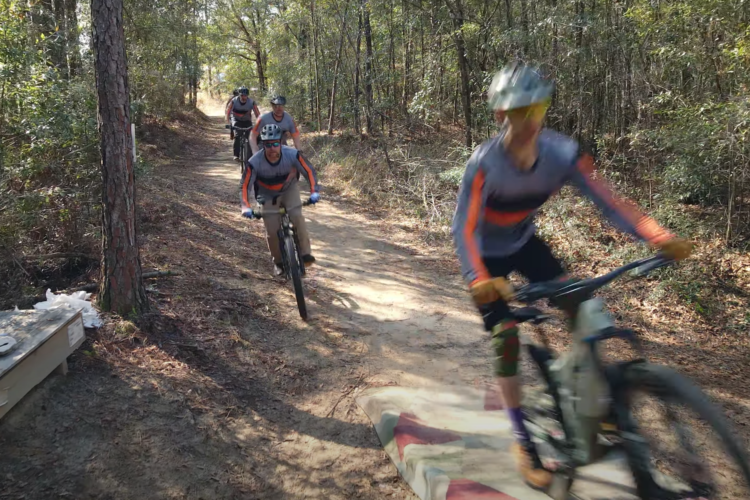


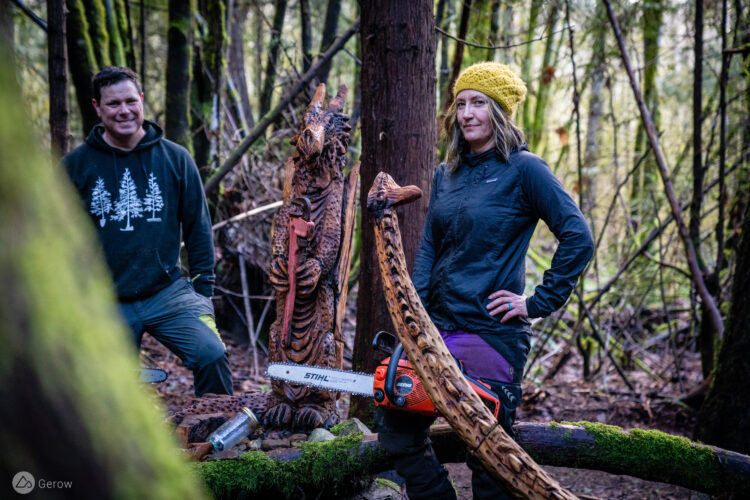

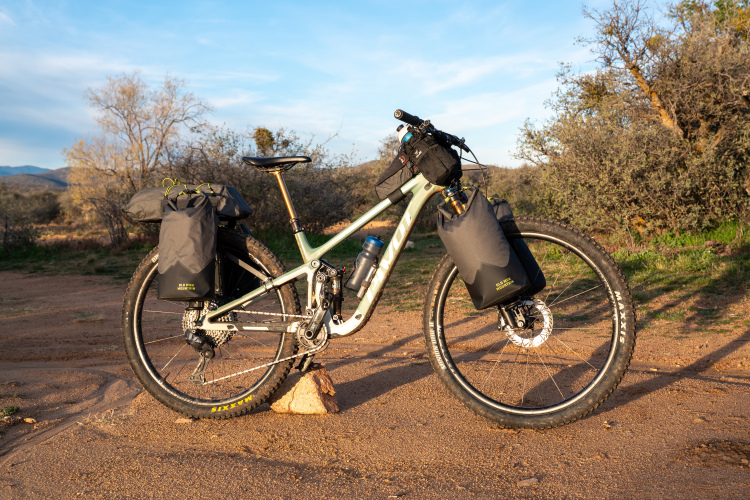
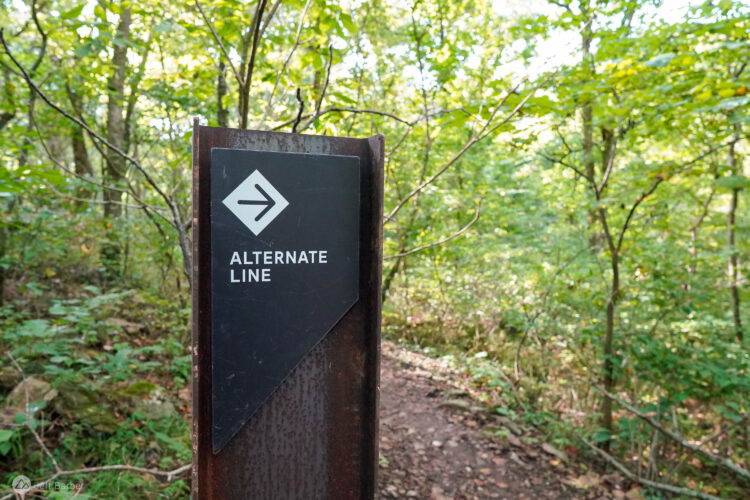
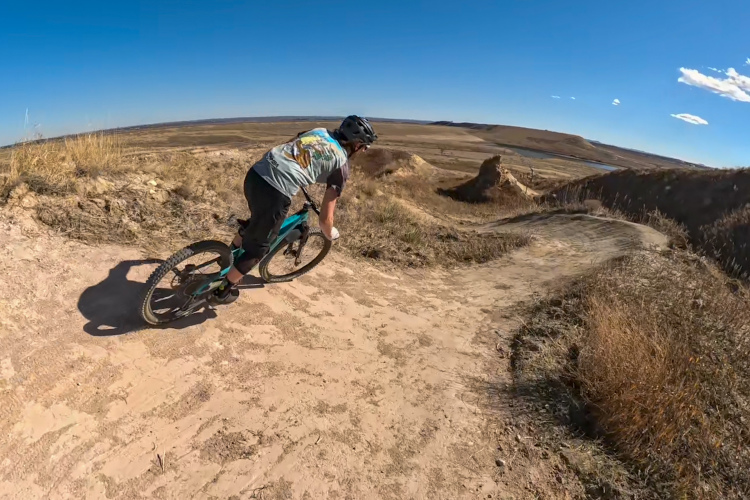

1 Comments
Jun 9, 2022